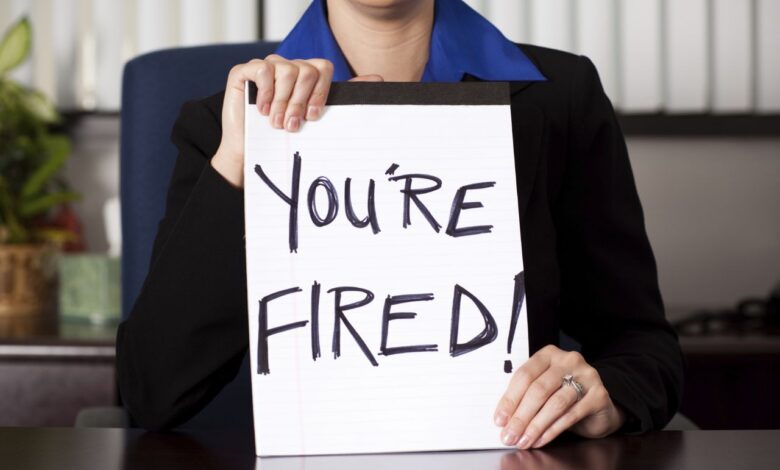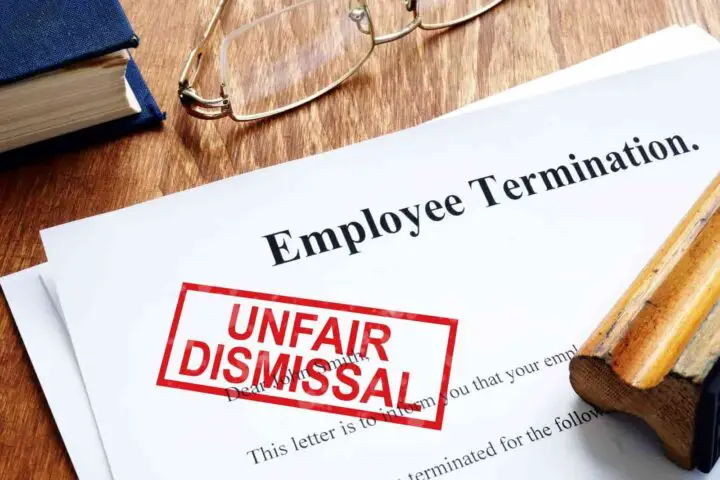The Road to Resolution: Dealing with Unfair Dismissal and Legal Endings

Unfair dismissal is a term that resonates with dread for many employees. At its core, it refers to the unjust termination of an employee without valid reason or without following proper procedures. In today’s dynamic work environment, understanding what constitutes unfair dismissal is not just beneficial—it’s essential. Every employee, regardless of their role or tenure, should be well-versed with their rights. This knowledge not only empowers individuals to stand up against unjust practices but also fosters a more transparent and fair workplace.
Recognizing Unfair Dismissal

Unfair dismissal isn’t always blatant. It can manifest in subtle ways, from being let go for discriminatory reasons, such as age, gender, or race, to being dismissed without a valid contractual reason. Sometimes, it’s about the process: Were you given proper notice? Were you provided with a valid reason for your dismissal? Recognizing these signs is the first step in addressing the issue. It’s crucial to differentiate between a genuine redundancy or a performance-based dismissal and one that breaches the tenets of fairness and legality.
Steps to Take When Facing Unfair Dismissal
The shock and disbelief following an unfair dismissal can be paralyzing. Yet, it’s crucial to act promptly and strategically to ensure your rights are protected. Start by meticulously documenting every interaction and detail related to your dismissal. This encompasses verbal conversations, written communication, and any preceding incidents that might have hinted at the termination. Additionally, compile all contractual documents, past performance reviews, and any other paperwork that could be pertinent. Before escalating the matter, it’s wise to seek legal counsel. An initial consultation with an employment attorney can shed light on the strength of your case and guide your subsequent actions.
Seeking Legal Counsel

The intricate world of employment law can be intimidating for the uninitiated. This is precisely where the expertise of an employment attorney and unfair dismissal solicitors becomes indispensable and it is without a doubt one of the first steps you need to take. With a specialization in workplace-related issues, these legal professionals can provide invaluable guidance, robustly represent you in legal settings, and champion your cause. When selecting an attorney, it’s imperative to verify their experience, especially in unfair dismissal cases. Their proficiency and past track record can be pivotal, shaping the direction and eventual outcome of your case.
Understanding the Legal Process
Embarking on a legal claim for unfair dismissal is not a straightforward endeavor. It requires strict adherence to a well-defined process. The initial step involves lodging a claim with the designated labor authority or employment tribunal. This phase is characterized by rigorous paperwork, where you meticulously outline the reasons for your claim and provide corroborative evidence. Precision becomes paramount; even seemingly minor oversights can significantly weaken your stance. Additionally, it’s vital to remain aware of the associated timelines. Many governing bodies have stringent deadlines for claim submissions. Failing to adhere to these can lead to an outright dismissal, rendering all efforts null.
Alternative Dispute Resolution

Before navigating the potentially stormy seas of litigation, one might consider the more tranquil waters of alternative dispute resolution (ADR). These processes, which occur outside the traditional courtroom, such as mediation or arbitration, aim for a mutually agreeable resolution. In mediation, a neutral third party assists in fostering a constructive dialogue between the disputing parties. In contrast, arbitration adopts a more formal tone, where an arbitrator renders a binding decision after hearing both sides. While ADR can present a more efficient and harmonious route, it’s essential to gauge its appropriateness, especially considering the specifics of your case.
Filing an Unfair Dismissal Claim
The act of formally filing a claim signifies a major progression in the unfair dismissal journey. This pivotal stage demands exhaustive documentation, encompassing everything from formal employment contracts to casual email correspondences that might shed light on the situation. It becomes crucial to ensure that each document strictly conforms to the guidelines set by the labor authority or tribunal. Overlooking a single document or presenting incomplete information can not only introduce delays but might also pose a threat to the legitimacy of your claim.
The Tribunal Process

An employment tribunal, designed as a quasi-judicial body, is tailored to address the intricacies of unfair dismissal cases. The process is comprehensive, necessitating the presentation of evidence, the summoning of witnesses, and the opportunity for rigorous cross-examination. Given the tribunal’s demanding nature, thorough preparation becomes indispensable. Your attorney, chosen for their expertise, plays a central role during this phase, crafting compelling arguments and ensuring your case is presented in the most persuasive light.
Potential Outcomes of an Unfair Dismissal Claim
The tribunal process’s conclusion can manifest in a variety of outcomes. Depending on the depth of evidence and the potency of arguments presented, outcomes can range from monetary compensation to, in rare instances, reinstatement to your former position. The tribunal’s final decision is intricately tied to the specifics of the case, the caliber of evidence presented, and the efficacy of the legal arguments advanced.
Legal Endings: Settlement Agreements
Occasionally, both parties in dispute might lean towards a settlement agreement, opting to bypass the tribunal’s formal verdict. These agreements, while legally binding, often stipulate a compensation amount, provided in exchange for the employee forgoing any subsequent legal actions. While such an agreement can expedite the resolution process, it’s of utmost importance to understand the implications and potential future consequences.
Appealing Tribunal Decisions

In situations where the tribunal’s decision doesn’t resonate with your expectations, the option to appeal is available. However, it’s crucial to understand that appeals are typically centered around perceived legal oversights rather than challenging the established facts. To mount a successful appeal, it becomes essential to identify and underscore any legal errors or inconsistencies in the tribunal’s decision-making process.
Moving Forward: Lessons and Advice
Dealing with unfair dismissal is undoubtedly challenging. However, it also offers lessons in resilience, rights, and resolution. As you move forward, arm yourself with knowledge, advocate for transparency in the workplace, and always know your rights. Remember, every ending is a new beginning.
